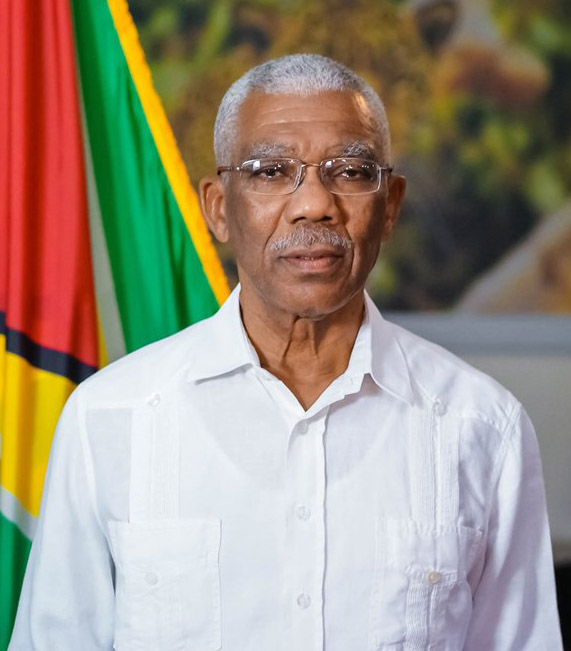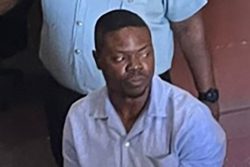The rights of Guyanese voters would be in serious jeopardy if former President David Granger was to have his way and elections issues were withdrawn from under the ambit of the Caribbean Court of Justice (CCJ), according to commentator Ralph Ramkarran SC.
Ramkarran, the presidential candidate for A New and United Guyana (ANUG) made this point in his column in yesterday’s Sunday Stabroek in reaction to an eyebrow-raising interview which Granger had given in which he had said that electoral matters should rest with the Guyana Court of Appeal and not the CCJ.
“The rights of Guyanese voters would be in serious jeopardy if Mr. Granger’s withering criticism of foreign observation of our elections or withdrawal of elections’ issues from the CCJ are allowed to occur. Guyana has a very far way to go to ensure that elections will always be free and fair. Those with bad intent will eliminate the threat to electoral manipulation posed by foreign observation and the vigilance of the CCJ. The only certain way the electoral system can be protected is to enshrine foreign observation and the all-embracing, appellate, jurisdiction of the CCJ in the constitution, by way of referendum if necessary”, Ramkarran said.
Ramkarran, a former two-term Speaker of the National Assembly said that if the PPP does not take steps to entrench the CCJ and foreign observation of elections and it loses the next or any future elections, the abolition by the PNCR of foreign observation of elections and exclusion of electoral matters from the jurisdiction of the CCJ would see the PPP kissing goodbye to political office forever.
He said that in reality, the only permanent elimination of electoral problems which have bedevilled the country’s politics for generations is to have a political solution.
“But both political parties have felt so aggrieved at each other for so long that no such possibility is anywhere in sight. In the meantime, it is necessary to strengthen our democracy because our history has demonstrated that in conditions of authoritarian or undemocratic rule, no chance exists for a political solution because ruling authorities, with state power, are normally unwilling to cede even an iota of power. A political solution, or inclusive governance of such a substantive nature that it will eliminate feeling of exclusion and discrimination, can only materialize in conditions of stable democracy, Guyana’s democracy needs to be strengthened and preserved until the time when the momentum for a political solution once again emerges on the political agenda”, Ramkarran contended. Ramkarran, a former senior member of the PPP said that it had taken longer than expected for the challenge to the jurisdiction of the CCJ to materialise. He said that Granger did not mention that the strength of the Court of Appeal was essentially three-fifths of its complement for his entire presidency except for a six-month period when there were two acting Judges. Further, the term of office of the Judicial Service Commission (JSC) expired in 2017 preventing their potential reappointment, and a JSC has never been reappointed even up to now.
“The ‘very strong’ Court of Appeal had to elevate temporary Judges from the High Court on three different occasions to complement its panel to hear election matters. Of the four cases heard by the ‘strong’ Court of Appeal, two were successfully appealed to the CCJ. In one it was held that the majority of 65 is 33 and not 34, as decided by the Court of Appeal. In the other it was held that the Chief Election Officer was unlawfully invited by the Court of Appeal to engage in a validation exercise to determine ‘valid’ votes for which a procedure by way of election is laid down in the constitution and the validity of elections laws”, Ramkarran noted.
He added that politicians do not like independent courts.
“That was the reason for the abolition of the (UK) Privy Council and the establishment of the Court of Appeal as Guyana’s final court. Those who were around at the time in 1970 when appeals to the Privy Council were abolished will remember the great fears which were expressed at the potential subversion of Guyana’s judiciary by the PNC, particularly in view of the already rigged 1968 elections. These fears were realized when, shortly after the Declaration of Sophia in 1974 announcing the paramountcy of the PNC over the institutions of State, the PNC flag was flown on the Court of Appeal building. Later, Justice of Appeal Victor Crane, in an address to the Bar Association, linked the necessity of the rule of law with the creation of the right environment for socialist orientation which was the dominant preoccupation of the then government. Guyanese watched helplessly for decades while the judiciary was subverted in numerous ways”, Ramkarran said.
On a recent edition of the PNCRs ‘Public Interest’ interview programme, Granger said “Our electoral laws have to be seriously re-examined but I believe we live in a society where we are mature enough to conduct elections I don’t think there is need for foreign intervention. The level of foreign influence in the period [March-August 2020] was phenomenal…the (elections) Commission was brought under relentless influence from foreign agencies… the whole atmosphere was toxic,” he said.
Pressed to identify specific areas of improvement, Granger identified the structure and function of the Commission, the role of the CCJ and the National Register of Registrants.
“I am of the view that in internal electoral matters, we need to strengthen the role of our own Court of Appeal and… the Court of Appeal was competent to rule… on electoral matters inside of Guyana,” Granger said.








